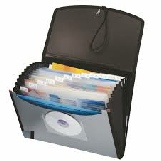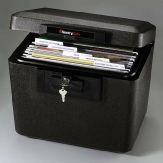www.thetinman.org Copyright © All rights reserved.

Disclaimer: The material presented in this site is intended for public educational purposes only. The author is not offering medical or legal advice. Accuracy of information is attempted but not guaranteed. Before undertaking any diet, or health improvement program, you should consult your physician. The author is in no way liable or responsible for any bodily harm, physical, mental or emotional state of any patient reacting to any of the content on this site. Thetinman.org has not examined, reviewed or tested any product or service mentioned herein. We are not being paid to advertise or promote any product or service mentioned herein. The links are offered strictly as examples of resources available. The site assumes no responsibility or liability of any kind related to the content of external sites or the usage of any product or service referenced. Links to external sites were live at the time of creation of the link. Thetinman.org does not create content for or manage external sites. The information can be changed or removed by the external site’s administrators at any time and they are responsible for the veracity of their information. Links are provided to support our data and supply additional resources. Please report broken links to administrator@thetinman.org. Thetinman.org is not a charitable foundation. It neither accepts nor distributes donations or funds of any kind.


In life in general, but especially when you carry the diagnosis of a debilitating disease, it is important to be prepared for all side effects, including memory problems, incapacitation, even death.
Easy access to information is crucial, not only for yourself but for your trusted support system.
It is a good idea to organize your important papers and to create lists of important contacts and personal information. If you do not have a dedicated filing cabinet, you can purchase binders, expandable file folders, or fireproof locking file boxes at your local office supply store. All of these tools can be utilized by printing out forms and filling them in or creating your own digital folders and files. If your files are digital, back up your back ups. Consider burning files onto disks or copying them onto USB drives or external hard drives. Consider an automatic back up service or a "cloud" storage system.
 Keeping track of your medical history is important. You can find those forms in the
Patient Forms section.
Keeping track of your medical history is important. You can find those forms in the
Patient Forms section.
Here, we offer tools for keeping your other important information and documentation organized.
IMPORTANT PERSONAL INFORMATION (FORM)
This form lists your name, address, phone, number, cell-phone number, and email and identification documents: social security number, driver’s license number, student ID#, employer ID#, passport number, even your blood type. You can fill one out for everyone in your household (spouse, children, grandchildren, or other dependents).
You can order emergency identity cards that provide parents and law enforcement with crucial information should your child become lost or missing. The driver's license-like card contains your child's photograph, fingerprint and description. Local police stations may offer this service as well. http://identakid.com/
It also lists the vehicles you own (or drive), make and model, color, VIN#, license plate numbers, and expiration. Include your local BMV contact information and the name and phone number of the loan provider (if applicable) and your loan account number.
IMPORTANT CONTACTS LIST (FORM)
List all names and contact information for family members, close neighbors, relatives or co-workers who need to be notified in case of emergency, and all of your doctors, pharmacies, dentists, and nearest (or preferred) hospital. List people who have a key to your house and their contact information.
In case of an emergency 911 (in the US) should be the quickest way to alert emergency services. However, it doesn't hurt to have the direct numbers on hand for the local police and fire stations, ambulance services, and clergy, counselor, or house of worship.
LIST OF INTERNATIONAL EMERGENCY SERVICES
SIGN-IN AND PASSWORD LIST (FORM)
List every online account you set up for pharmacies, stores, groups, email, social media, etc. Include your sign-in name, password, and associated security questions. Keep this in a secure location.
HOME SAFETY AND SECURITY LIST (FORM)
In case of emergency, it helps to have the location of the hidden house key (in case you forget), electrical breaker box, water cut off valve, and heating and air-conditioning thermostat. List your utility service providers, their phone numbers and your account numbers. List the location of your alarm system control pad(s). List the verbal password and keypad password as well as the name and telephone number of the security company. List your account number for easy identification. It is a good idea to have carbon dioxide monitors as well as fire detectors installed if you don't already have them. It helps to list your garbage and recycling company. Be sure to research their hazardous waste regulations if you are on injectable medications or other medical supplies that require special handling.
LEGAL AND FINANCIAL CONTACTS (FORM)
Make sure to include online sign-ins and passwords for your accounts and cards, in the event family members need access in an emergency or upon your death.
List the name and number of your attorney, if you have one or have used one in the past. This is critically important if you have drawn up a will, trust, or other legal documents that will be kept on file at their office. You may need an attorney to help you with social security disability.
You should have a master list of your checking and savings account numbers, tracking numbers for online payments, and the persons authorized to sign transactions, if any. Write down the location of your checkbooks and account records (whether printed or digital).
For credit cards, list the company, their contact numbers for reporting loss, theft, or fraud, account numbers, expiration date, and 3-digit security code on back. Include your online sign-ins and passwords. List the location of your safe deposit box and location of the key.
List your financial advisor or investment broker contact information, including your account numbers and online sign-in and passwords.
List the name and contact number for your insurance agent(s). List the policy providers, contact numbers, and policy numbers for health, homeowner, renter, automobile, watercraft, motorcycle, disability, long-term care, annuities, professional liability coverage). For life insurance include policy numbers, types (whole or term life), amounts, and beneficiaries.
INSURANCE CLAIM TRACKING (FORM)
It helps to keep track of your insurance claims for the year, whether you claim medical expenses on your taxes or not. It will help you resolve problems when they arise and prevent double payments for services rendered. Initially you receive something from the provider at the time of service. In most plans, they submit the claim to your insurance company. In some cases, you must do this yourself. You should then get a statement from the insurance company stating how much they paid, or if they rejected the claim. You can (and should) appeal this rejection. Talk to your service provider. It could be as simple as adjusting a billing code or providing an explanation to the insurance company. You should wait until the insurance has made a final decision/payment before paying the provider the balance.
You can keep one master medical folder and list for all claims, or do separate folders and lists for vision, dental, medical, and pharmaceutical. You may choose to keep a folder for unpaid claims then match up all of the documents regarding the claim once the final payment is made and file it under paid claims.
Most pharmacies offer services that allow you to print reports of all of the prescriptions you have filled for the year.
 If these documents are not kept in a safety deposit box, consider a home safe or
fire proof lock box.
If these documents are not kept in a safety deposit box, consider a home safe or
fire proof lock box.
In this box you should have a copy of your living will or advanced directive, durable power of attorney, wills and trusts (including written instructions regarding funeral, burial, or cremation or pre-paid arrangements), funeral plot deeds, birth certificates, social security cards, military discharge papers, marriage license and record, divorce decrees, custody papers, adoption papers, naturalization papers, passports, disability verification, educational diplomas (high-school, college, professional certification), mortgage and real estate papers and deeds, vehicle titles or loan papers (car, motorcycle, boat, recreation vehicles), receipts for major property improvements, recent tax returns, and other legal documents. It is helpful to have files for each family member living in the home.
If you own your own business, you should keep records such as articles of incorporation or filing for business name and/or tax ID, partnership agreements, sole proprietorship documentation, subcontractor agreements, customer or supplier agreements, sales tax ID forms, recent tax returns, and accounting records in a safe place. If it is digital, there should be backups of backups kept up-to-date, preferably somewhere other than your own hard drive.
You should list the location of all accounting records (paper or digital), tax forms, payroll, invoices, purchase orders, and physical inventory. You should list contact information for partners and key associates, emergency contacts such as employees, creditors, or suppliers. You should list your accountants, investment brokers, attorneys, and bank contacts.
You should also leave instructions for what to do if you become incapacitated, including a list of business banking account numbers, credit card numbers, location of physical checks and bank statements, as well as online access sign-ins and passwords for them. In addition if you have a website, blog, or are on social media, you should leave a list of those sign-ins and passwords.
ORGANIZING INFORMATION
Living with SPS Self Care Grooming Dressing Bedroom Safety Housebound/Bedridden
Kitchen,Cooking & Groceries Home Care Hiring a Service In-Home Care Exercise Mobility Driving
Managing Medications SPS & Pregnancy Organizing Information Financial Aid Legal Aid Mental Health
Anxiety & Depression Suicide Prevention Relationship Health Risk of Abuse Venting Caregiving

Disclaimer: The material presented in this site is intended for public educational purposes only. The author is not offering medical or legal advice. Accuracy of information is attempted but not guaranteed. Before undertaking any diet, or health improvement program, you should consult your physician. The author is in no way liable or responsible for any bodily harm, physical, mental or emotional state of any patient reacting to any of the content this site. Thetinman.org has not examined, reviewed or tested any product or service mentioned herein. We are not being paid to advertise or promote any product or service mentioned herein. The links are offered strictly as examples of resources available. The site assumes no responsibility or liability of any kind related to the content of external sites or the usage of any product or service referenced. Links to external sites were live at the time of creation of the link. Thetinman.org does not create content for or manage external sites. The information can be changed or removed by the external site’s administrators at any time and they are responsible for the veracity of their information. Links are provided to support our data and supply additional resources. Please report broken links to administrator@thetinman.org.